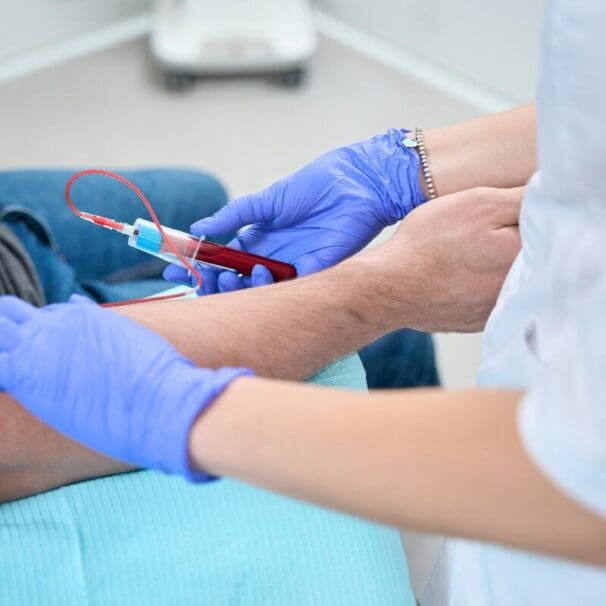HealthProviders DB is a comprehensive database of healthcare providers, including a complete directory of all blood banking and transfusion medicine physicians.
Pathology Healthcare Taxonomy Code 207ZB0001X
As of today, the following are the total number of Blood Banking & Transfusion Medicine Physicians nationally, in your State, and near your location.
Select a State below to view the list by State. Additionally, you can narrow the list by city, among other options, from the Filter Panel, which you can open by clicking the vertical ellipses ⋮ in the upper right corner of the app.
Alaska – Alabama – Armed Forces Pacific – Arkansas – American Samoa – Arizona – California – Colorado – Connecticut – District of Columbia – Delaware – Florida – Federated States of Micronesia – Georgia – Guam – Hawaii – Iowa – Idaho – Illinois – Indiana – Kansas – Kentucky – Louisiana – Massachusetts – Maryland – Maine – Marshall Islands – Michigan – Minnesota – Missouri – Northern Mariana Islands – Mississippi – Montana – North Carolina – North Dakota – Nebraska – New Hampshire – New Jersey – New Mexico – Nevada – New York – Ohio – Oklahoma – Oregon – Pennsylvania – Puerto Rico – Palau – Rhode Island – South Carolina – South Dakota – Tennessee – Texas – Utah – Virginia – Virgin Islands – Vermont – Washington – Wisconsin – West Virginia – Wyoming
Medicare
The following are the total number of Blood Banking & Transfusion Medicine Physicians who accept Medicare in your State, the number who have opted out of Medicare, and the total number excluded from participation in Medicare nationwide.
The diagram below shows all the Blood Banking & Transfusion Medicine Physicians across the country, represented by blue bubbles. The larger the bubble, the greater the concentration of providers in that area. Red bubbles represent Medicare-excluded providers, with the larger bubbles indicating a higher percentage of excluded providers in that region. You can change the bubble size to be based on exclusions from the Size menu.
What do Blood Banking & Transfusion Medicine Physicians do?
Blood Banking & Transfusion Medicine Physicians ensure the safe and appropriate use of blood products by overseeing the collection, testing, processing, and administration of blood components.
They act as clinical consultants, manage patient blood and apheresis therapies, conduct pre-transfusion compatibility testing, investigate transfusion reactions, and supervise blood banking operations to maintain a safe and adequate blood supply.
What they do
Blood Product Safety & Management: They are responsible for maintaining an adequate blood supply and ensuring the safety, purity, and potency of blood products.
Pre-Transfusion Testing: Physicians oversee compatibility testing to guarantee that the blood given to patients is safe and compatible.
Clinical Consultation: They serve as clinical consultants, advising other physicians on complex cases, such as patients with alloimmunization (the development of antibodies to blood) or those requiring therapeutic apheresis.
Therapeutic Apheresis: They manage apheresis procedures that use specialized machines to remove harmful substances or cells from a patient’s blood or to collect stem cells.
Patient Blood Management: They work to optimize blood use in complex patient populations, including those with hemoglobinopathies (blood disorders) and coagulation disorders, as well as those requiring perioperative blood management.
Investigating Reactions: They investigate and manage adverse reactions to blood transfusions.
Donor & Recipient Safety: They are involved in donor recruitment and ensuring the safety of donors and recipients.
Tissue Typing: In some roles, they oversee HLA (human leukocyte antigen) typing, which is crucial for organ and bone marrow transplantation.
Environemt
Transfusion medicine physicians work in various settings, including Hospital blood banks and transfusion services, Blood centers, Cellular therapy and stem cell laboratories, and Research institutions.

